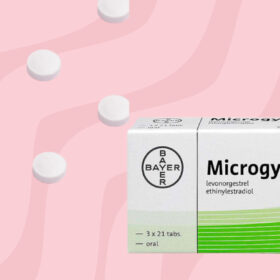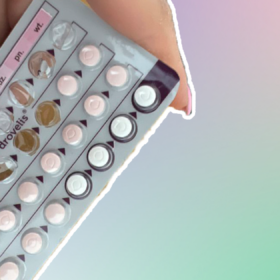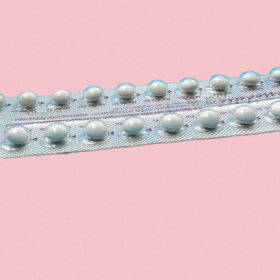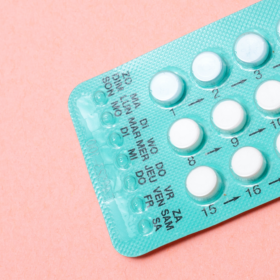
Can you get pregnant on the birth control pill?
In this article
What's the lowdown?
Yes, you can get pregnant on the pill, even when using it perfectly
The contraceptive pill is more effective than barrier methods like the condom or diaphragm but less effective than long-acting reversible contraceptives (LARCs) such as the implant or the coil
Certain things can make the pill less effective such as vomiting, missing a birth control pill, not taking it at the same time each day, some medications, poor absorption and not starting a new pack straight away
Although the pill has a high success rate when taken correctly, there are various factors that can affect this. So if you want to know exactly what to avoid to ensure your contraceptive pill remains as effective as possible, then keep reading.
Firstly, there are two types of contraceptive pill:
Combined pill
(Examples include Yasmin, Rigevidon and Levest)
The combined pill is a hormonal contraceptive pill taken daily, either with a break of up to a week every 3 weeks or continuously to avoid withdrawal bleeds. It contains the hormones oestrogen and progestogen.
Progestogen-only pill (POP)
(Examples include Aizea, Cerelle and Zelleta)
The progestogen-only pill is also a daily hormonal contraceptive, but unlike the combined pill, it only contains one hormone – progestogen – and packets are usually taken back to back with no breaks, other than the brand Slynd which includes a break.
How effective is the birth control pill?
When assessing how effective a contraceptive method is we look at typical and perfect use. At the Lowdown, we have created an easy guide on the clinical effectiveness of different contraceptives to help you to find the most effective option.
If we look at 100 sexually active pill users for a year, with perfect use less than 1 will get pregnant, meaning with perfect use it is 99% effective. But if we look at typical use, around 7 to 9 will get pregnant during that year, which means the pill is 91-93% effective with typical use.
So in answer to the question… Yes, you can get pregnant on the birth control pill, even when using it perfectly.
In comparison to other contraceptives, the contraceptive pill is more effective than barrier methods like the condom or diaphragm but less effective than long-acting reversible contraceptives (LARCs) such as the implant or the copper coil.
What happens if you miss a pill?
If you miss a pill there are certain actions you must take. This gets a little bit complicated and depends on whether you are on the progestogen-only pill or the combined pill. It also depends on what type of each pill you are on too!
The Lowdown have created a one-of-a-kind missed pill calculator tool based on FSRH Guidance, which takes all the guesswork and panic out of missing a pill! It also offers clear advice on whether you should consider accessing emergency contraception.
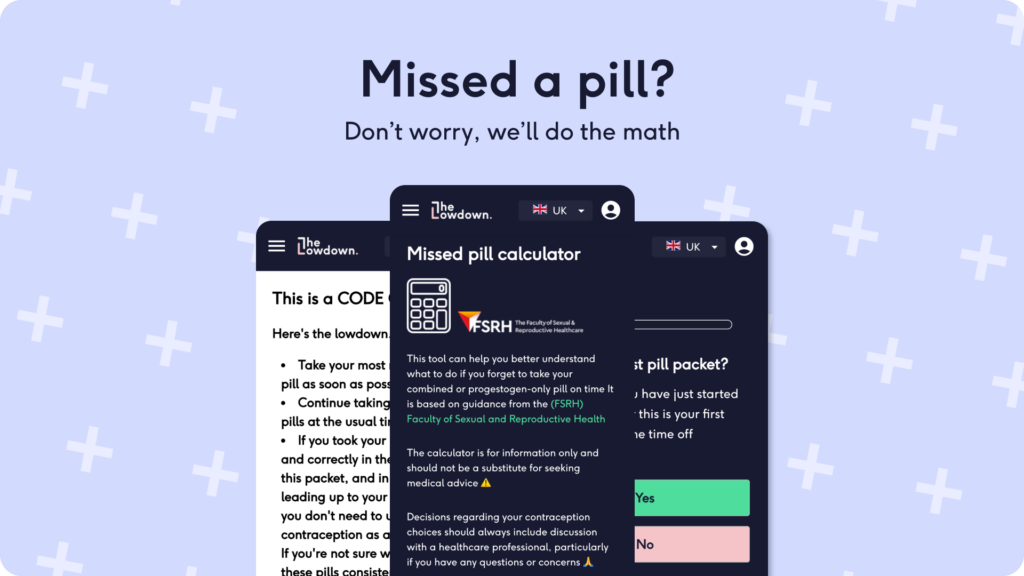
How do I change the time I take my pill?
If you want to change the time you take your pill, we’ve written a handy guide about how to change the timing of your pill which explains the ‘safe windows’ for pill taking. This is helpful if you want to change time of day or are travelling to different time zones.
What medications interfere with the pill?
Certain types of medication can make the pill less effective. Certain antibiotics can affect the pill (such as rifampicin) and anti-fungal drugs (such as griseofulvin). Whilst on these medications you should use backup contraception and for some time after stopping them, depending on the medication.
Other more long-term medications and supplements may also affect how well contraceptive pills work:
- Epilepsy drugs such as phenobarbital, phenytoin and carbamazepine
- Antiviral medications used to treat HIV
- St. John’s Wort, which is a herbal remedy
What can cause the birth control pill to be less effective?
Missing days
The pill should be taken daily for it to be most effective and therefore if you miss a day, your hormone levels may not remain consistent enough to prevent pregnancy. If you struggle to remember to take a birth control pill every day, other contraceptive methods may suit you better – check out our reviews from users to see which one is best for you.
Not taking the pill at the same time each day
The contraceptive pill is designed to be taken at or around the same time each day to ensure that it can maintain hormone levels. Certain traditional progestogen-only pills such as Noriday or Micronor have a strict 3 hour window to take the pill in each day, desogestrel containing POPs such as Cerelle or Cerazette have a 12 hour window to take it in, where as the drospirenone containing POP known as Slynd has a 24 hour window .
Not starting a new pack straight away
If you are using the combined pill and having breaks, it is essential that you do not have longer than a 7 day break as this can lead to ovulation which in turn can lead to pregnancy. With the progestogen-only pill there needs to be no break at all between pill packets. For the drospirenone POP there are 24 active pills and 4 placebo (sugar or dummy) pills in each packet, meaning there’s a built in hormone free break.
Vomiting
If you happen to become ill when taking the pill and vomit, the pill may not be fully absorbed by the gut. If you do experience vomiting within 3 to 4 hours of taking your pill, you should take another birth control pill as soon as possible then take your next pill as usual. This also applies if you have severe watery diarrhoea soon after taking a pill. If the replacement pill is not taken within the safe window for that pill you may need to take extra precautions. Check out our missed pill calculator tool if you’re not sure.
Poor absorption
If you have had an operation involving the gut such as bariatric surgery it may interfere with absorption of the contraceptive pill so other methods that don’t need to be absorbed through the stomach might be better.
How to help make the pill as effective as possible
- Try to find a habit or routine in your day where you can take your pill, for example whenever you brush your teeth before bed
- Order your pill prescription early if you get it from your GP. Don’t leave it until the day that you need it as can’t always be processed
- Reading the packaging and following the instructions carefully
- Try to take the pill at the same time every day
- Using an app that tracks periods and provides pill reminders, check out MyPill® and MyOC.
- Always get a new pill pack at least 1 week before the pill pack is due to run out
- Always take missed pills as soon as possible and check up to date guidance from NHS or use our handy missed pill calculator
Our medical review process
This article has been medically reviewed for factual and up to date information by a Lowdown doctor.


